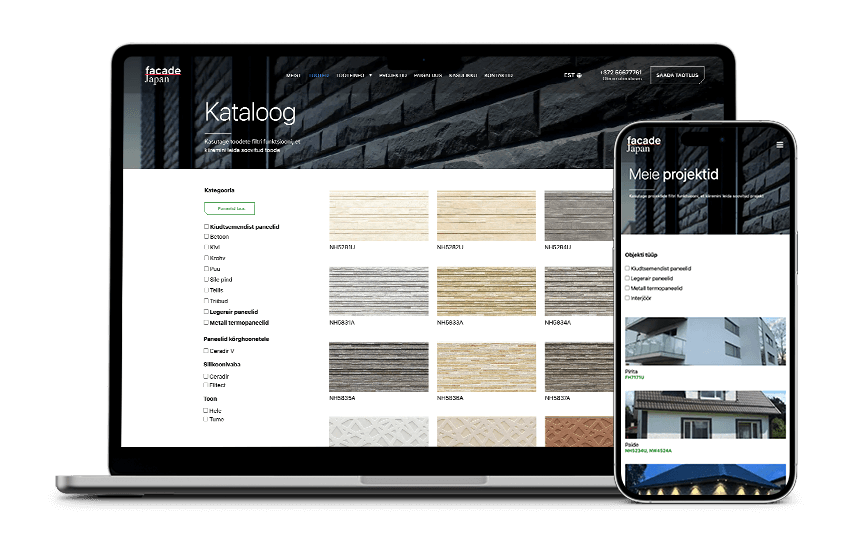
Creating a professional catalogue website opens up broad prospects for your business. It provides customers with convenient access to information about your products and services, enhancing the efficiency of managers and speeding up the purchasing process. A personalized approach to catalogue website creation allows for a detailed and precise presentation of your assortment, ensuring high conversion of visits into sales.
When it comes to creating a catalogue website, we guarantee that every aspect of the project, from design to backend, will be executed with a focus on quality. Using the latest security standards and best coding practices, we build catalogue websites that provide high performance and fault tolerance. Continuous technical maintenance and monitoring ensure that your site operates smoothly, which is especially important when handling a large number of product listings and user traffic.
Our approach to creating catalogue websites involves not only adhering to current web design trends but also anticipating future trends to keep your site ahead of the competition. We implement modern technological solutions, such as artificial intelligence to enhance user recommendations, and incorporate adaptive design features to ensure your catalogue site looks great on all devices and platforms.
We know that business grows, and your catalogue website must grow along with it. For this reason, we build scalable solutions that allow you to easily add new products and categories, integrate additional features, and manage increasing volumes of data without losing performance. As a result, as you expand, your catalogue website easily adapts to new demands while maintaining stability and speed.
Creating a catalogue website involves integration with various external systems such as CRM, ERP, and payment gateways, facilitating the automation of business processes and enhancing sales accounting and inventory management. We create unified solutions that allow you to easily synchronize your catalogue site’s operations with other tools of your business for more efficient functioning.
Our team ensures ongoing updates to your catalogue website to keep it aligned with the latest trends and technological innovations. This includes security updates to protect your customers’ data, as well as functionality updates to enhance user experience and increase conversion rates.
We offer a full range of consulting services to help you maximize the benefits from your catalogue website. Our experts are always ready to share their experience and provide recommendations on optimizing your site’s structure, improving SEO, and enhancing its appeal to potential buyers.
If you want to discuss your ideas for creating a catalog website with our experts, please contact us for a free consultation. We are ready to share our experience and help you implement your project in the best possible way.

Creating a catalogue website includes planning the site structure, design, development, integration with databases and external services, as well as SEO optimization. The main goal is to provide a convenient and functional platform for presenting and searching your products and services online.
SEO optimization is crucial for ensuring that your catalogue website ranks high in search engine results, attracting more potential customers and increasing online sales. Key elements such as title tags, meta descriptions, and image alt attributes need to be optimized to enhance visibility.
Choosing a platform for creating a catalogue website depends on your business needs and technical requirements. Popular CMS options like Magento, WordPress with WooCommerce plugin, or Shopify can be adapted to create powerful product catalogues, each with its own set of tools and functionalities.
The time it takes to create a catalogue website can vary depending on the complexity of the project, the size of the catalogue, and specific requirements. Typically, it takes from several weeks to several months to develop a fully functional and optimized site.
Yes, creating a catalogue website often involves integrating with various business systems such as CRM, ERP, and inventory management systems. This allows for the automation of numerous processes and improves order management and customer service.
We will be happy to provide you with a clear and detailed proposal
Punane 14a, Tallinn, Estonia, 13619
688 6518Contact us by phone
Write to usWrite to us, and we'll coordinate our actions!